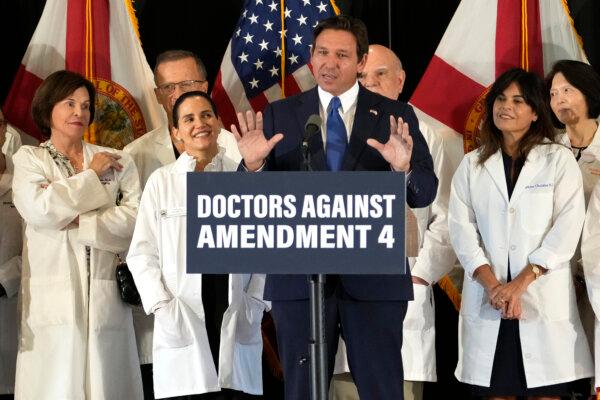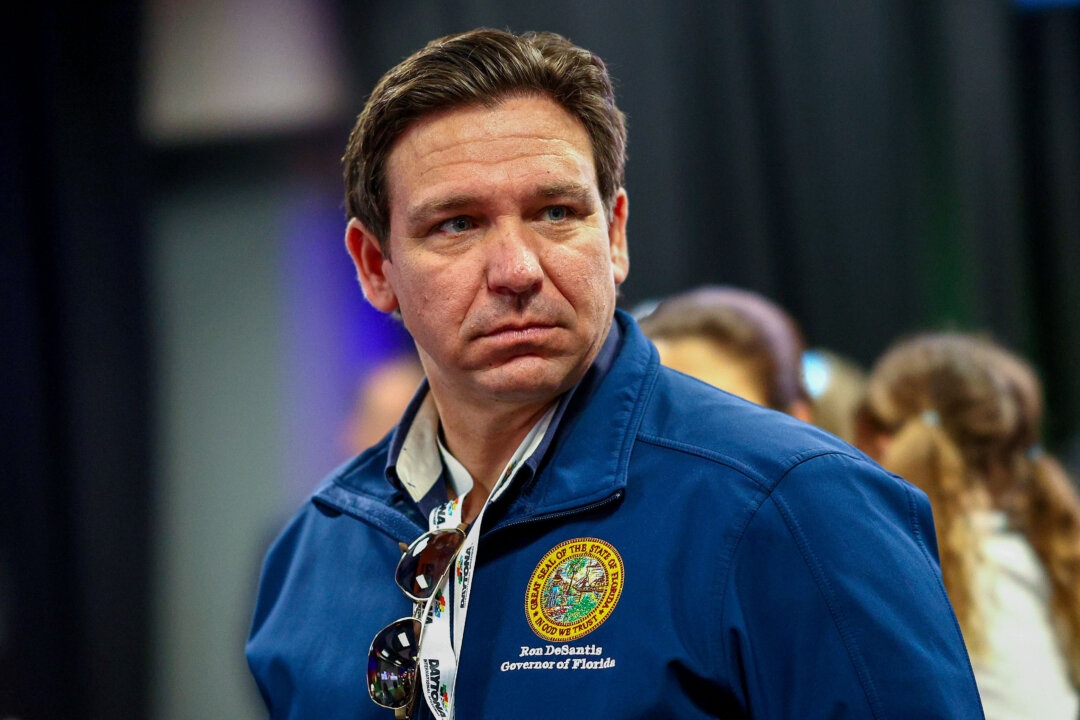Florida lawmakers will also address hurricane relief and condo assessment fees, and reform the state’s amendment initiative process.
Florida Gov. Ron DeSantis announced that he is calling all members of the state House and Senate back to Tallahassee for a special session later this month to expedite the state’s legislative alignment to President-elect Donald Trump’s policies on illegal immigration.
“We don’t have the ability to just sit around and wait with a new president taking office with these new policy changes that are coming. We’ve got to get ahead of it,” the governor said during a Jan. 13 press conference.
“We’ve got to make sure that we’re there as a willing partner with the Trump administration to be able to accomplish what the voters sent President Trump to accomplish.”
The special session is set for Jan. 27, one week after Trump’s inauguration and more than one month before the state Legislature’s regular session.
DeSantis said that actions regarding illegal immigration would come down as presidential executive orders immediately after the swearing-in and inaugural address.
While he said he and his fellow lawmakers have to wait to see the exact wording of the orders, the governor told members of the press that he had already been briefed.
“My guys are in contact with some of their staff, so we’ll tailor what we’re doing to mirror what their policies are going to be,” he said.
DeSantis outlined two primary objectives. The first would be to pass legislation that clearly defines additional duties expected of state and local officials. These new duties would require them to work with the federal government and ensure that civil servants within the state are held accountable if they insist on going in a different direction, such as violating the state’s current anti-sanctuary city policies.
The second objective would be to provide more funding to state and local officials, particularly law enforcement.
“I have a lot of sheriffs out there that are chomping at the bit,” he said. ”They want to be able to help, and they just need a little bit of funding, so we have a responsibility to provide that funding.”
The governor said the money would probably be in the tens of millions of dollars but was “not going to break the bank “ and would be manageable with Florida’s current fiscal position.
“If the Trump administration is successful, it will save us money on the back end because if you go and look at some of who shows up at police stations and who’s getting arrested, we do have a chunk of them that are in this country illegally,” he said.
He referred directly to looting suspects arrested in Pinellas County after Hurricanes Helene and Milton, stating that a vast majority of them were in the country illegally.
DeSantis said the special session would work to eliminate any remaining incentives for illegal aliens to come to the state of Florida, such as preferential state tuition for illegal aliens, which was signed into law by then-Gov. Rick Scott in 2014.The Florida Legislature’s regular session starts on March 4. Still, DeSantis said there was no time to waste on these legislative changes and other pressing matters.
He announced that the special session would reform the current petition and amendment initiatives, which faced significant backlash and fraud accusations during the 2024 election cycle.
Florida voters can propose amendments to the state constitution by collecting enough voter signatures from across the state. However, Amendments 3 and 4, which would have legalized recreational marijuana use and enshrined abortion access in the state constitution, were unsuccessful. They had faced stark criticism for being funded by special interest groups amid accusations of fraudulent signature submissions.
“I think part of the reason we’re at this juncture is because the citizen initiative has really been transformed into a special interest initiative, and it’s basically major, well-funded interests,” DeSantis said.
“They will pay people to gather petitions, and they’ll pay them. And so these people have admitted, some of them have admitted to doing fraudulent petitions.”
The governor stressed the need to improve signature verification for ballot initiatives and prospective candidates.

He also criticized how the amendment’s language was presented and shared with everyday voters, saying that proponents write in the most creative language possible to get people to vote yes.
“We need election integrity across the board,” the governor said. “It can’t just be, ‘Yes, obviously, if you’re going to cast your ballot, you need ID, you need paper ballots,’ and all that. But these initiatives, these petitions, should not be able to be manipulated this way, especially with respect to amending the constitution.
“Our constitution should not be for sale to the highest bidder.”
The special session will also address lingering hurricane relief issues, specifically with agriculture relief and homeowners approved or on the waiting list for grants from the MySafeFloridaHome program.
“Why not provide them that grant so they can build back in a way that’s going to be more resilient in the future, given that they’re in those areas?” he asked.
“If the legislature doesn’t want to do that, that’s one thing. But if you’re going to do it, why wait for the money to be available July 1?”
Addressing condominium relief will also be on the agenda. DeSantis said his administration is seeing unintended problems arise due to the state Legislature’s initial response to the collapse of the condominium building in the Miami suburb of Surfside in 2021.
This push comes after months of his administration and the Florida Senate soliciting input from across the state as condo owners have found themselves with costly assessment fees.
“We have a responsibility to act, to make sure that people can stay in their condo units,” he said. “The Legislature should not be doing anything that’s going to cause someone to have to flee because of an artificial mandate.”

